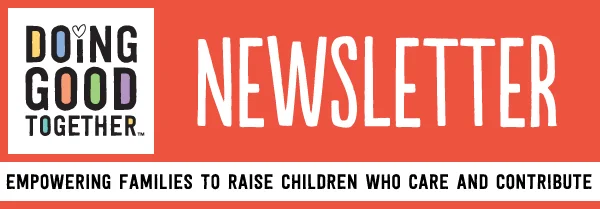RAISING A NATURE-LOVING CHILD
The best way to raise your kids to become stewards of the environment is to get them to like, even love, nature. And what better time to start than summer? These activities will get you going, but once outdoors you'll come up with dozens more fun, creative ways to appreciate the natural world.
-Jenny Friedman, Executive Director
CONNECTING KIDS WITH NATURE
Make a Difference.....
- Start a collection: Whether you go on a hike, spend a few hours at the park, or play in your own backyard, think about items to collect. This encourages your children to look more closely for the special treasures nature yields up. Maybe they'll collect feathers or leaves. Or rocks shaped like hearts. Keep your finds in a special box or on an appointed windowsill.
- Learn and look: The more you learn, the more exciting it is to observe what is happening in nature. Read a book or do other research, then get out to experience the phenomenon firsthand. Topics could include star constellations, ant habitats and native birds. Keep a nature journal or scrapbook to record -- with your own drawings, too -- all that you discover!
- Nature crafts: Use the outdoors as your craft box. Paint rocks, make wands out of sticks and feathers, do leaf rubbings or make birch-bark masks. Or find pine needles to weave into mats or reeds to weave into fences for your action figures.
- Get planting: Start now to plant seeds for vegetables, flowers and herbs. What does each plant need to stay nourished? How fast do they grow? How are the plants you see around your community different from those in other parts of the country or world?
- Be a nature detective: Grab a magnifying glass, sketchbook, gloves, binoculars, camera or other tools to investigate what is hidden in ponds, under leaves, up in the trees or in the dirt. A good game of I-spy can jumpstart your observations. How many red things can you find? How many colors of lichen? Or clouds shaped like dinosaurs?
- Backyard campout: If you don't have the time or energy for a weekend getaway , grab some popcorn and spend a night tent-camping in your backyard.
- A secret space: Build a fort in your backyard to give kids a special base for their outdoor activities. Put up a tent, or simply mark off a specific place kids can use as their own. It may turn into a fairy house!
- Picnic: Another great tradition is to pack up your picnic basket, grab a blanket and sun hats, and head to your favorite park. (Hint: keep picnickingsupplies -- aside from the food -- ready to go so you can picnic on a whim.)
- Also try out the Nature Scavenger Hunt or Matching Colors in Nature activities from the Big-Hearted Families website. And check out these family activities and stories from the Children & Nature Network.
ENCOURAGING DISCOVERY
Talk About It.....
As you spend time outdoors, talk to your kids about the importance of taking care of our world and respecting all it has to offer.
- How do you feel after you spend time outside?
- Do you think that people should take responsibility for taking care of the natural world?
- What can we do to take care of the environment?
- What do you think it would be like if we didn't have parks or other outdoor spaces to use? Nature Collection
- What about nature is most interesting or exciting to you?
- What are your favorite outdoor activities? What would you like to try?
Learn About It.....
The Nature Connection: An Outdoor Workbook for Kids, Families, and Classroom by Clare Walker Leslie (Storey, 2010) is packed full of exercises, ideas and activities to ignite your children's curiosity about the great outdoors.
The Lorax (Random House, 1971) is a classic for a reason. A silly, colorful, book in true Dr. Seuss fashion, but with an important message about caring for the environment.
INSPIRATION
"Children are born with a sense of wonder and an affinity for Nature. Properly cultivated, these values can mature into ecological literacy, and eventually into sustainable patterns of living."
- Zenobia Barlow, executive director and cofounder of the Center for Ecoliteracy"If we want children to flourish, to become truly empowered, then let us allow them to love the earth before we ask them to save it. Perhaps this is what Thoreau had in mind when he said, "The more slowly trees grow at first, the sounder they are at the core, and I think the same is true of human beings."
- David Sobel, education writer

